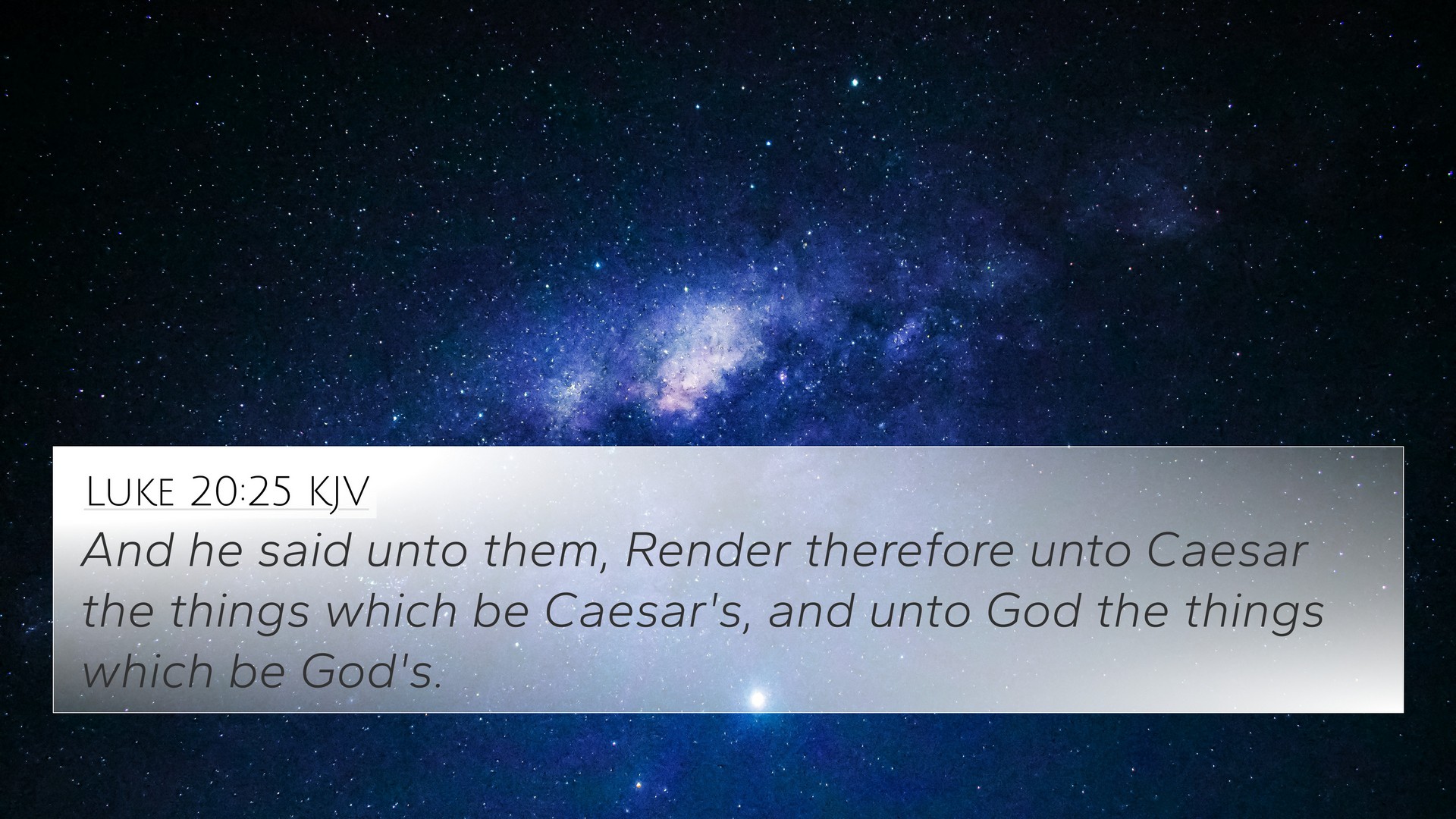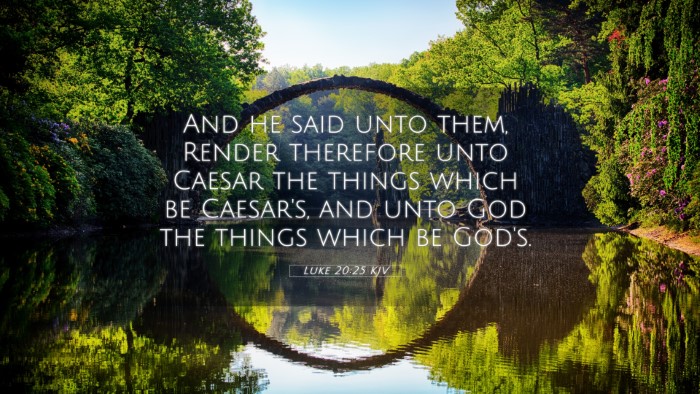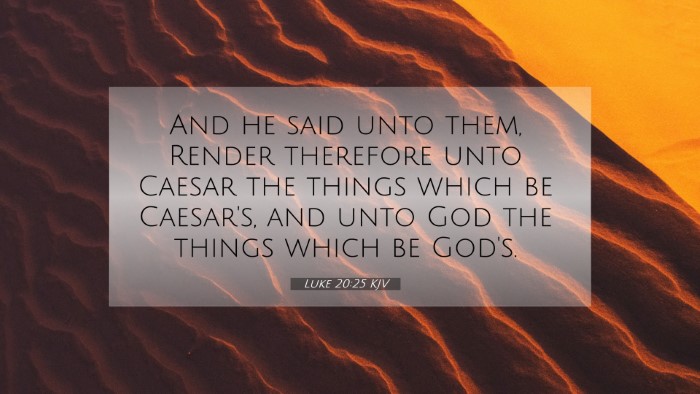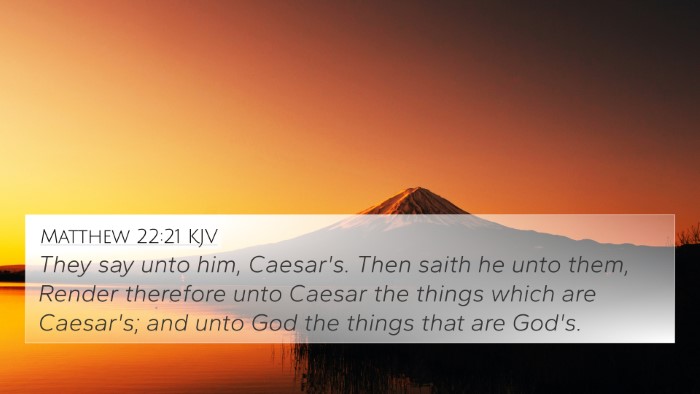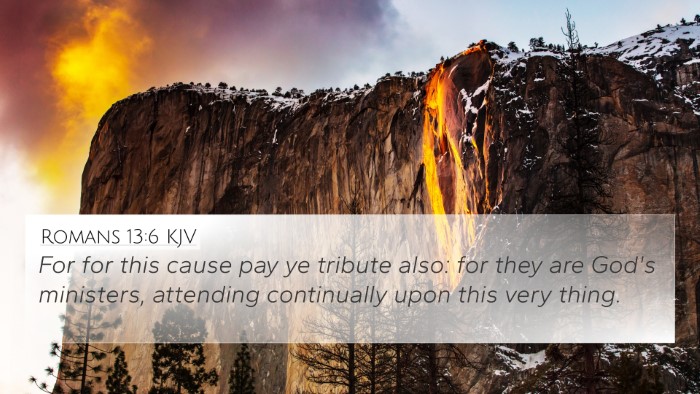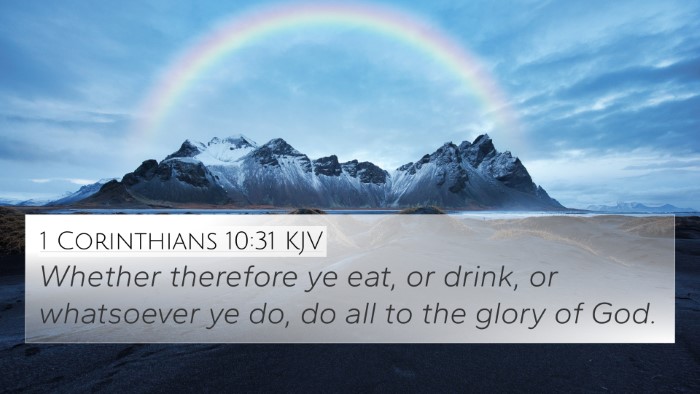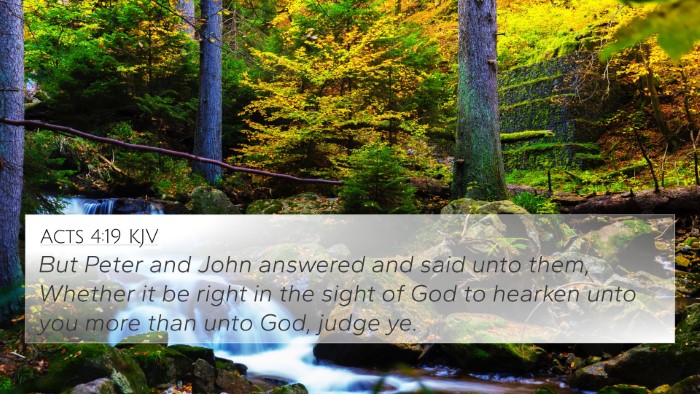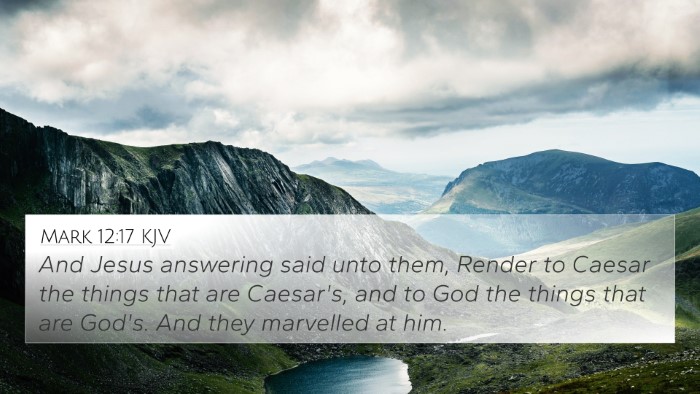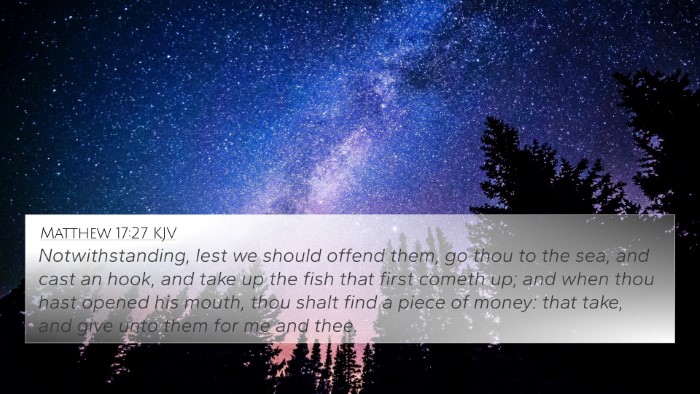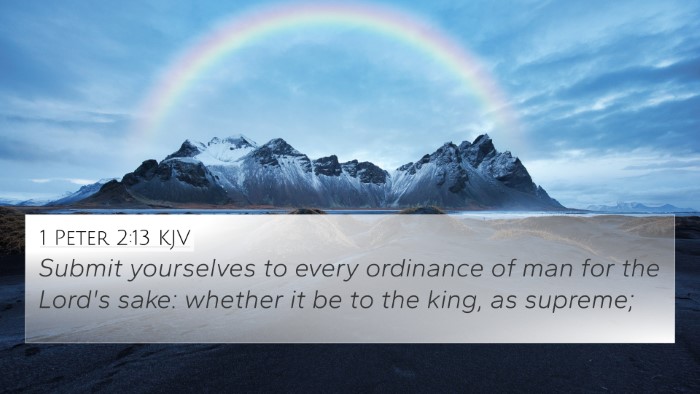Understanding Luke 20:25
The profound words of Jesus in Luke 20:25 state:
"And he said unto them, Render therefore unto Caesar the things which be Caesar's, and unto God the things which be God's."
This verse captures a pivotal moment in Jesus' ministry where He navigates the complex relationship between civil authority and divine obligation.
Summary of Insights
The verse invites deep reflection on the responsibilities of individuals to both their government and their faith.
Public domain commentaries provide a wealth of insights into the duality of obligations as portrayed in this scripture.
Matthew Henry's Commentary
Matthew Henry emphasizes the fundamental principle of fulfilling civic duties while remaining faithful to God. He notes that Jesus delineates
the realms of secular and spiritual authority, urging believers to give rightful honor to both. There is a significant
understanding that rightful governance has a place, but it should never overshadow one’s duty to God.
Albert Barnes' Commentary
Albert Barnes expands upon the notion of rendering unto Caesar. He remarks that the phrase illustrates recognition of legitimate
governmental authority, particularly under Roman rule. His view encourages believers to exercise their citizenship responsibly,
while always prioritizing their spiritual commitments. Barnes points out that compliance to secular laws should never come at the
cost of moral compromises prescribed by God.
Adam Clarke's Commentary
Adam Clarke highlights the cultural context of the statement. He describes how this moment serves both as a lesson in
diplomacy and a profound theological assertion. Clarke explains that Jesus cleverly addresses the trick question posed
by the Pharisees, demonstrating His wisdom in separating earthly affairs from heavenly mandates. He reinforces the idea
that both spheres must be attended to, but with an understanding that God’s command has the ultimate authority.
Bible Cross-References for Luke 20:25
- Matthew 22:21 - Echoes the same sentiment about rendering unto Caesar.
- Romans 13:1-7 - Discusses the Christian’s duty towards governing authorities.
- 1 Peter 2:13-17 - Encourages submission to every ordinance of man for the Lord's sake.
- Acts 5:29 - Highlights the priority of obeying God over human rulers.
- Proverbs 24:21 - Advises to fear the Lord and the King, respecting their authority.
- John 18:36 - Jesus speaks of His kingdom not being of this world, reaffirming His spiritual mission.
- Galatians 6:7-10 - Emphasizes reaping what one sows in both earthly and spiritual investments.
Thematic Connections Between Bible Verses
The insightful connections between these verses illuminate the overarching theme of dual citizenship: earthly and heavenly.
Luke 20:25 serves as a bridge that encourages believers to explore these themes deeply, recognizing the necessity of
each obligation and how they complement rather than conflict with one another.
Cross-Referencing Biblical Texts
To understand effective Bible study, utilizing tools for cross-referencing is essential. This involves engaging with a
systematic study approach by linking scriptures to draw comprehensive insights. Biblical concordances and reference
guides are valuable tools in identifying relationships between passages.
How to Use Bible Cross-References Effectively
-
Step 1: Identify the primary themes in a verse.
-
Step 2: Consult a Bible concordance or cross-reference guide to find related scriptures.
-
Step 3: Draw thematic connections, noting how verses illuminate or complement one another.
-
Step 4: Reflect on how these connections apply to faith and practice in daily life.
Conclusion
Luke 20:25 encapsulates the heart of Christian teaching regarding our obligations to both God and
worldly authorities. By exploring its meaning through various commentaries and cross-referencing other relevant scriptures,
believers can deepen their understanding of their dual responsibilities. This exploration is vital not only for personal
edification but also for effective teaching and sermon preparation.
Whether through thematic study or detailed analysis, the connections between Bible verses enhance one’s spiritual journey,
providing insights that resonate through the ages.
